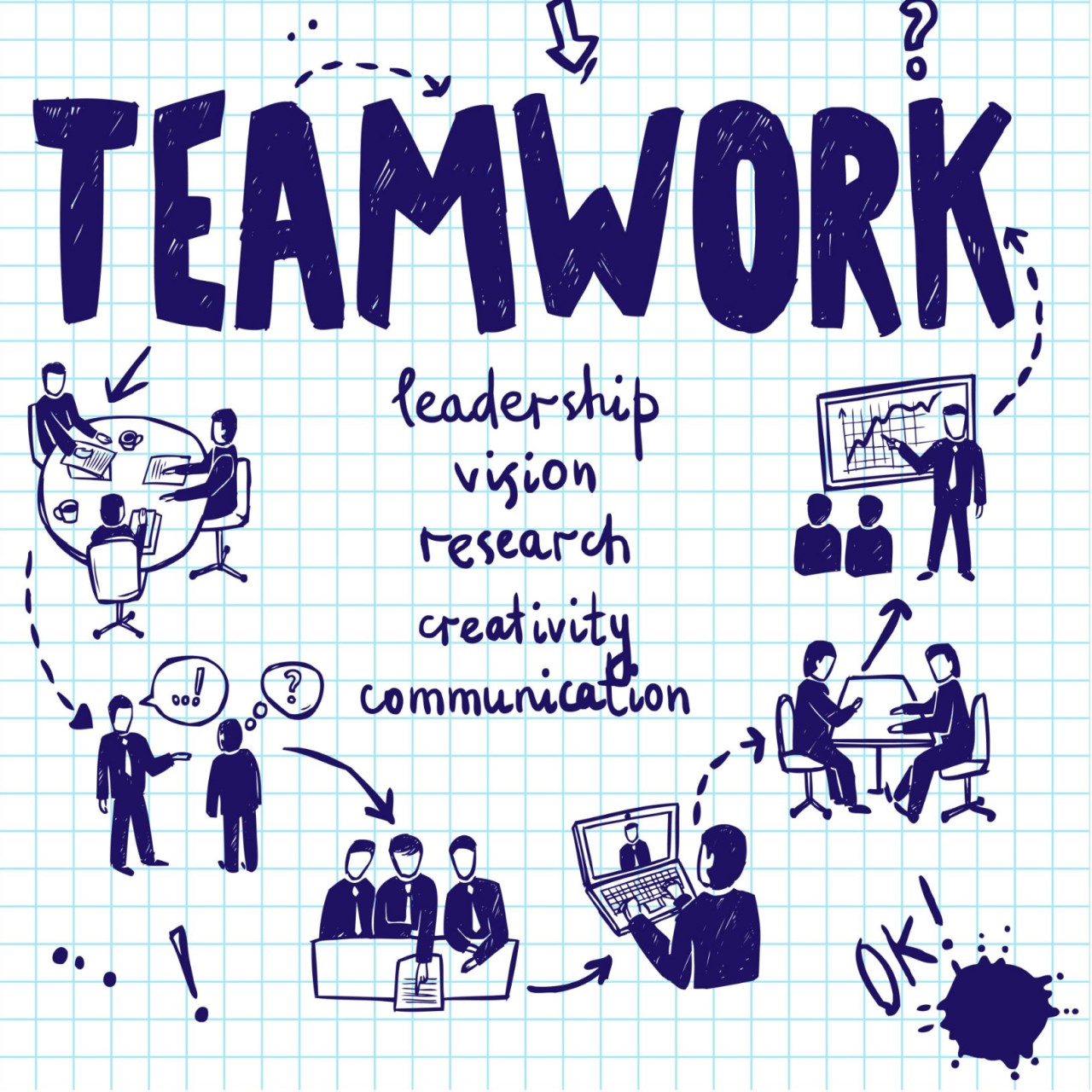Insight Blog
Agility’s perspectives on transforming the employee's experience throughout remote transformation using connected enterprise tools.
16 minutes reading time
(3156 words)
Why Team Building is Important in the Workplace in 2024
Learn why team building is important, their purpose and benefits and tips for how to ensure an effective team-building process.
Ever thought of why team building is important in some organizations where the problems can be resolved so quickly and the work progresses fast, even with numerous employees? On the contrary, there is the case of successful companies adapting to even slight changes in market dynamics, while some others fail to do this. Teamwork is the main reason for this.
The ability of team members to communicate effectively and cooperate with each other, combined with the corporate workforce acting as a single body, is the pathway towards the realization of business goals.
Nonetheless, getting top-notch teamwork is not a one-night accomplishment. A successful project team cannot be accomplished without laying the team building foundations.
Before you read on, does the idea of team building intrigue you?
Let's get to know its meaning and discuss the good sides of team-building activities in the workplace.
What is Team Building?
The team building consists of different activities, training sessions, and initiatives aimed at the improvement of the teamwork skills and communication skills, which are very important for reaching the common goals. Collaboration is the very base of the team work, especially in the hybrid work environments, where the effectiveness is highly dependent on the collaboration.
These programs cement bonds between peers and this contributes to the overall employee experience.
Moreover, they create a mindset among team members to work as a united entity not as soloists.
During team building sessions, team members usually engage in various activities to enhance collaboration and productivity.
These activities may include:- Selecting a leader, if one hasn't been designated already, to provide direction and coordination for the team.
- Creating a comprehensive plan and timeline for their project to ensure clarity and efficiency in execution.
- Sharing ideas and brainstorming sessions to explore different perspectives and potential solutions.
- Engaging in open dialogue by asking each other questions to clarify doubts and gain deeper insights.
- Collaborating to overcome project constraints, obstacles, and challenges by offering support and assistance to one another.
These activities foster a sense of unity, cohesion, and mutual support among team members, ultimately contributing to the overall success of the project.
3 Examples of corporate team building activities
Corporate team building activities are exercises frequently conducted by businesses to enhance skills such as problem-solving and active listening, as well as to reinforce relationships among coworkers. The following examples are commonly used in workplace team-building initiatives. Here are 3 team building examples:
1. Organizing a Scavenger Hunt
Scavenger hunts are a popular choice for corporate team-building activities, focusing on problem-solving, critical thinking, communication, and teamwork. While professional event companies offer guided corporate scavenger hunts, you can also plan and conduct one independently.
To organize an office scavenger hunt:
- Select a location and map out a route.
- Create challenges and clues for participants to solve.
- Divide participants into teams.
- Provide each team with a map and instructions.
- Allocate between thirty minutes to two hours for completion.
- Reconvene teams, share discoveries, and announce a winning team.
You can tailor scavenger hunts to various themes, such as company culture, global exploration, or a pirate treasure hunt. These activities are not only enjoyable and engaging but also serve as effective team-building exercises.
2.Team Dinners
Everyone enjoys a good meal, making team dinners a popular choice for corporate team-building events. In my previous workplace, team dinners were a cherished tradition, where colleagues gathered around a hibachi stove, sharing stories and laughter while enjoying delicious food.
Today, team dinners are becoming increasingly common as companies recognize their value in fostering a sense of camaraderie among coworkers.
These gatherings reinforce the notion of colleagues as an extended family, providing an opportunity for bonding over shared meals and casual conversations. Organizing a departmental dinner is simple - just pick a date, choose a restaurant, and make a reservation.
As the importance of team building continues to be emphasized, companies are exploring more innovative corporate team activities. From escape rooms to lunch and learns to sporting events, there is a growing demand for diverse and engaging team-building experiences.
3.Company Retreats
Corporate retreats are highly valued as effective team-building activities within companies. Many organizations opt to take employees offsite for dedicated sessions focused on skill development and team bonding. For example, one of my previous employers organized an annual company meeting at a nearby hall.
During these retreats, employees engaged in team games, interacted with coworkers from different locations, received updates on company initiatives, and attended seminars on topics such as providing top-tier customer service akin to Disneyworld standards. These retreats provided an excellent opportunity to forge connections with colleagues spread across various geographic locations.
Company retreats feature a diverse array of team-building exercises, making them a versatile and impactful tool in fostering camaraderie and collaboration among employees.
What is the purpose of team building?
The purpose of team building is to foster collaboration, communication, trust, and cohesion among team members.
By engaging in various activities and exercises, team building aims to enhance relationships, improve morale, boost productivity, and ultimately achieve better results. Team building activities help team members understand each other's strengths and weaknesses, develop mutual respect, and learn to work together effectively towards common goals.
So, team building promotes creativity, problem-solving skills, and a positive work culture within the team. Overall, the goal of team building is to create a supportive and cohesive team that can effectively tackle challenges and achieve success together.
What are the Benefits of team building?
Team building offers numerous advantages that can greatly benefit both individuals and organizations. Let's learn three notable Benefits of team building in the workplace:
Socialization and Networking Opportunities
Team-building events provide invaluable opportunities for coworkers to forge stronger connections, both on a personal and professional level.
By engaging in these activities, team members have the chance to discover each other's unique personality traits and talents. This deeper understanding allows group members to allocate tasks more effectively, leveraging individual strengths to enhance overall project performance. Moreover, when teammates enjoy collaborating with one another, they may choose to work together on future projects, fostering friendships and a supportive work environment.
Research has shown that 85% of employees believe that team-building activities strengthen workplace relationships, leading to improved collaboration and productivity.
Encouragement of Creativity and Innovation
Team-building activities serve as catalysts for sparking creative solutions to challenges and problems commonly encountered in the workplace.
When employees regularly collaborate and engage in team-building exercises, they develop a sense of trust and comfort within the group. This environment of psychological safety encourages individuals to freely share their ideas and opinions without fear of judgment. As a result, teams become more adept at generating innovative solutions, whether it's improving processes, refining work procedures, or brainstorming new approaches to achieve project goals.
Statistics reveal that companies with high levels of employee engagement are 21% more profitable, highlighting the importance of fostering creativity and innovation through team building.
Development of Leadership Skills
Participating in team-building exercises provides individuals with valuable opportunities to hone their leadership abilities. These activities often require participants to take initiative, delegate tasks, and communicate effectively with team members. Through experiential learning, individuals gain practical insights into effective leadership strategies and techniques.
As they navigate through various challenges during team-building activities, participants learn to adapt their leadership style to suit different situations. Ultimately, these enhanced leadership skills not only benefit individuals in their professional roles but also empower them to take on leadership roles in other areas of their lives.
Studies have shown that organizations with strong leadership development programs are 1.5 times more likely to achieve high performance and 3.5 times more likely to outperform their peers in revenue growth.
The disadvantages of team building in the workplace
We have put together a table of disadvantages of team building:
| Aspect |
Effects of Team Building |
Disadvantages if Not Applied |
| Collaboration |
Enhances collaboration and teamwork among employees |
Lack of collaboration leads to silos and inefficiencies |
| Communication | Improves communication channels and fosters open dialogue | Communication breakdowns result in misunderstandings |
| Morale | Boosts morale and motivation, leading to higher engagement | Low morale leads to decreased productivity and retention |
| Morale | Sparks creativity and innovation through idea sharing | Stagnation in ideas and lack of innovation |
| Trust | Builds trust and strengthens interpersonal relationships | Distrust among team members undermines teamwork |
| Problem-solving | Enhances problem-solving skills and decision-making | Inability to address challenges leads to project delays |
| Leadership Development | Provides opportunities for leadership growth and development | Lack of leadership results in directionless teams |
| Conflict Resolution | Equips teams with conflict resolution skills | Unresolved conflicts escalate and disrupt team dynamics |
| Employee Satisfaction | Increases employee satisfaction and job fulfillment | Dissatisfaction leads to high turnover rates |
| Organizational Culture | Shapes a positive organizational culture | Negative culture affects employee morale and performance |
In summary, team building has numerous positive effects on the workplace, including improved collaboration, communication, morale, creativity, and trust.
However, failing to implement team-building initiatives can result in various disadvantages, such as decreased productivity, communication breakdowns, low morale, lack of innovation, and conflict escalation.
Therefore, investing in team building is essential for fostering a positive work environment and achieving organizational success.
Follow us and access great exclusive content everyday: Follow us on Google News
11 Reasons Why Team Building is Important
Companies get many advantages from the fact that teams are close-knit, regardless of whether they work remotely, in a hybrid model, or in an office.
1. Team Building Establishes Trust
Trust creates the foundation upon which all workplaces stand. Companies with higher level of trust shows 50% more productivity than the ones with lower level of trust.
The team building has a significant impact on the development of the trust. Through team-building activities, employees learn to assist and depend on others in times of need.
Creating the trust further reduces the need for controlling and ensures employees feel safe getting involved into the open discussion—an essential component of organizational success.
You may also like: Best Apps for Employees: UPDATED 2022 – A Complete Guide
2. Team Building Bridges Gaps Between Departments
Imagine this scenario: Your organization unveils a new product line and realizes that the product development and sales teams are not integrated with the customer support and IT departments. Therefore, they are usually unable to offer prompt and accurate information to clients when they require it. This does not only decrease potential revenue but also increases the overall expenses of the business. Building your team is not only about intra-departmental relationships but also about effective collaboration across departments.
Getting all teams to work in tandem is the key for the successful achievement of objectives that are pre-requisites for the cooperation of the individuals belonging to different teams or units of an organization.
This is where cross-functional team building interventions become a necessity. By giving workers a chance to interact with other team members beyond their own team, this type of activities establish the ground for establishing relationships that enhance work productivity in the long run.
3. Team Building Enhances Communication
Research on leadership shows that 63% of leaders acknowledge the fact that team-building activities play a role in the improvement of communication within a team. This points out the importance of team building in the creation of open communication in the workplace.
A lot of collaborative activities, like team building exercises, require good communication among the team members. Success of the project is dependent on effective communication and a proficient method of identifying the speed and scope of the task.
The team members interact with each other during these activates and they get to assign roles, organize tasks, provide progress reports, and strategize to achieve objectives. This exercise becomes the key in their future cooperation on real cases.
Free ebook: How To Get Your Intranet Off The Ground
4. Team Building Elevates Employee Engagement and Morale
Team activities provide a sense of belonging, a common purpose, a shared vision, and the feeling of being part of something bigger than themselves. This shared vision serves to increase the sense of identity and awareness of the members and role of the organization.
The outcome?
Employees demonstrate extra zeal in their jobs, and carry out their work more eagerly, their motivation and energy level increase. This increase in morale helps to create a cooperative and result-oriented workplace.
5. Team Building Drives Productivity
Another compelling reason for team building is productivity. By working together in teams, workers experience more than a dozen benefits that generate productivity gains. These include:
- Developing new knowledge and acquiring new skills
- Improving the skills that employees already have
- Knowing each other's strengths and weaknesses to ensure proper task allocation for all team members
- The use of key tools such as delegation of tasks in an appropriate manner and the organization of workload will be mastered.
All this aggregately boosts the spirit of team work and allows team members to work seamlessly not only contributing individually but also making the most out of their workplaces.
6. Team Building Fosters Unity among Employees
Research has shown that 57% of employees get more enjoyment out of their jobs when they have friends at work. Hence, providing channels for socializing and making friendships between workers should be a priority. Team building activities organizing proves to be one of the best ways to facilitate teamwork, which in turn increases productivity.
For example, no employee should eat lunch in his office but should try to participate in the potluck lunch with other colleagues in an informal setting which promotes easygoing communication and relationship among the employees.
7. Team Building Cultivates Creativity and Learning
The role of creativity cannot be underestimated when it comes to overcoming the woes of teams and companies that are faced with the most critical challenges. Nevertheless, if they are not given a chance to do creative thinking frequently, the employees experience difficulties in generating innovative solutions.
Based on a Gallup survey, 35% of workers say that they have only sporadic chances to further hone their creative ability in a year. This aspect only emphasizes the vitality of team building in making it easier to express ideas.
Take a company looking at revamping its brand as an example. Instead of hiring an external design agency, the senior management decided to tap into their employees' creativity and source for logo and slogan concepts from them. The diverse thinking of the team has made it able to come up with a plethora of unique ideas that have added value to the final branding assets.
8. Team Building Promotes Acceptance
BCG's research, which surveyed a sample of more than 1700 companies across eight countries, demonstrated that organizations with above-average diversity scores also saw a huge increase of 19% of their innovation revenue compared to those with below-average diversity figures.
Having a diverse workforce makes your business diverse as well because the different perspectives and experiences meet to deliver amazingly great results. Diversity, on the other hand, thrives in an atmosphere that is governed by equality, dignity, and respect. These underline the importance of workers team building.
As organizations work overall towards creating an inclusive environment, team building takes on an even more important role in helping employees to develop acceptance and understanding among themselves. By accepting diversity, employees can abandon the prejudices and conflicts which interfere with the completion of tasks—the proof of the benefits of teamwork.
9. Team Building Facilitates Conflict Resolution
In the cases of teamwork, disagreements are likely to form when individuals with different backgrounds come together, with 35% of workers experiencing disputes or ongoing issues related to coworkers. While it is true that conflicts are part of everyone's lives and sometimes they can be good, one should teach all employees how to solve their differences creatively.
It is more effective to break the ice rather than ignoring conflicts. Creating environments where employees work through the difficulties of the day in the spirit of working together is more important.
The basis of successful dispute resolution is in the listening skills, respect of differentiating points of view, and creation of free communication atmosphere which, in turn, are all shaped through team building programs.
10. Team Building Unveils and Cultivates Talent
Team building creates a forum for employees to see their co-workers in action, and hence a range of skills to be learnt can be found in this comfortable environment. In addition to that, it can also be the gateway to discover the hidden talents among the employees, which can be a great advantage in the future.
For example, the participant in a team-building exercise may realize that they have emerged as a "leader," displaying their determination as well as interpersonal skills among their peers. In addition to making the whole team stronger, such achievements provide individuals with a sense of self-worth to participate actively and decisively in future projects.
11. Team Building Enhances Company Culture
Among all the job seekers in America, up to 50 percent ranked the organizational culture as one of the influential factors to make their decision when considering different employment opportunities.
The values, attitudes, and working conditions within an organization greatly determine whether the organization is teeming with good employees or a place where they can either be retained or be pushed out the door.
Team building is an agent of change that is designed to create and maintain a good company culture. The organization shows examples of correct behavior to team-building events, which help the employees to understand the culture and values of their workplace.
Also, these types of activities decrease the level of an undesirable atmosphere in the workforce and build unity, subsequently improving the total culture of the organization.
Wrapping up
Just as athletes improve their skills through training, corporate teams, too, can hone their collective teamwork through team building that is specially structured.
Just as basketball exercises develop athletic capabilities, team building develops skills like cooperation, communication, and delegation of tasks among the workers. In order to begin an efficient team building process, elaborate team-centered objectives and develop collaborative activities directed towards improving performance.
To initiate team-building efforts, begin by establishing team-focused objectives and organizing a sequence of impactful collaborative activities. Identify the key skills you wish to cultivate within your team and tailor the exercises accordingly.
So, if you aim to enhance team communication and collaboration, consider leveraging AgilityPortal.
Schedule a complimentary AgilityPortal demo to explore its potential impact on your team dynamics.
Find out how AgilityPortal can improve your team building in your Organisation
Categories
Blog
(2716)
Business Management
(333)
Employee Engagement
(213)
Digital Transformation
(185)
Growth
(124)
Intranets
(120)
Remote Work
(61)
Sales
(48)
Collaboration
(43)
Culture
(29)
Project management
(29)
Customer Experience
(26)
Knowledge Management
(21)
Leadership
(20)
Comparisons
(8)
News
(1)
Ready to learn more? 👍
One platform to optimize, manage and track all of your teams. Your new digital workplace is a click away. 🚀
Free for 14 days, no credit card required.
















